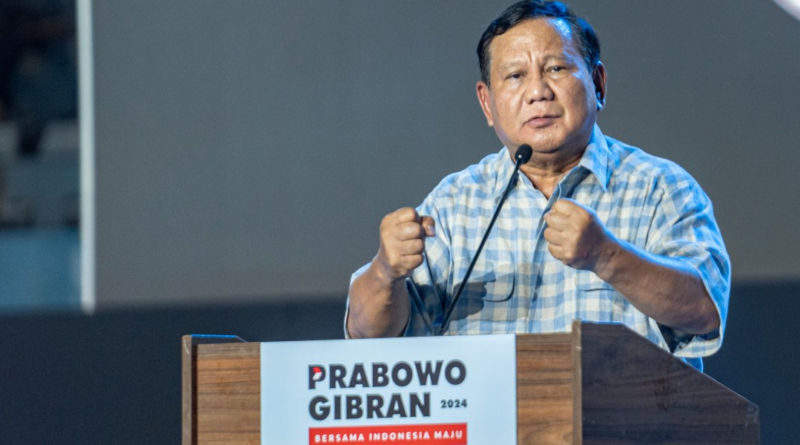The ‘Caudillo Syndrome’ is spreading around the world as economic disillusionment pushes voters to bet on populist strongmen
2024 will be a major test for global democracy. There are over 70 elections scheduled to take place, including roughly 40 for the executive branch. But this year is significant beyond the abnormally high number of elections.
The continued broad-based support for populism at the global level suggests that the 2024 elections could usher in a renewed cohort of populist, anti-establishment governments–and potentially, a broader backsliding of democratic norms across the globe. And this trend is fundamentally driven by economic and social disillusionment and an ongoing collapse of faith in the existing economic system.
We recently conducted the latest iteration of our survey of over 20,000 respondents which has measured the evolution of populist sentiment across 28 countries since 2016.
The latest survey found that anti-establishment beliefs rest on a sense of economic stagnation and are correlated with poor economic performance, inequality, and nostalgia about the past. The lynchpin of this system holds that the economic system is rigged against the average person. Our poll, for instance, found that 67% that the “economy is rigged” to benefit the elite.
Its logic goes something like this: Why, in a rich country, are there so many poor people? Because the elite have rigged the system in their favor. Where do citizens turn to? A strong leader who can take the country back from the rich and powerful, something that 63% of respondents agree their country needs. We often call this the “Caudillo Syndrome.” This syndrome varies from country to country, but the logic is the same.
An illiberal belief system
Our own analysis shows that it strongly correlates with different measures of democratic backsliding, corruption, and other forms of social and political disorganization. Such social dysfunction can run the gambit from disrespecting norms of conduct to violations of constitutional principles to electoral interference.
Many other indicators show significant democratic backsliding over the last decade or more. Freedom House notes that global freedom declined for the 17th consecutive year. And Transparency International shows that the world has made little progress against corruption. Our survey demonstrates that such slippage is rooted in popular support.
Anti-establishment figures don’t necessarily burn down the village after winning
Emmanuel Macron in France and Lula da Silva in Brazil both rode strong outsider waves but work within the system today.
The manifestation of more extreme forms of anti-establishment sentiment requires a strong political entrepreneur to stoke the flames. Take Jair Bolsonaro in Brazil. Or Javier Milei in Argentina. Or Viktor Orban in Hungary. Or Andrzej Duda in Poland. Ultimately, anti-system beliefs can lead to a variety of possible outcomes–some more vanilla, others more rabid.
There can be ebbs and flows to populist fervor
In Mexico and Indonesia, populist sentiment has come down in recent years, while it is on the rise in the U.K. and South Africa. Past analysis suggests that elections themselves can tamp down popular discontent with the system.
The elections this year will be a test as to whether the anti-establishment will prevail. We are keeping our eyes on a number of elections.
In the U.S., former President Donald Trump will seek to dethrone the more establishment candidate in incumbent Joe Biden. This is a classic match-up pitting the establishment against the anti-establishment. The context is telling: 65% of Americans agree that “our society is broken.”
South Africa has one dominant establishment party in the African National Congress (ANC). Since 2016, the belief that “the system is broken” increased by 15 points (58% versus 73%). We expect that the high levels of populist sentiment will leave cracks in the ANC facade. How this will play out specifically is uncertain.
Similarly, in the U.K., Labour will most probably prevail over the Tories–two traditional parties. This is against a backdrop of rising populist sentiment: the belief that “society is in decline” increased by 30 points between 2021 and 2023 (48% versus 78%). Even if the establishment prevails, anti-system beliefs will leave their mark, as evidenced by the rise of the Reform party in recent by-elections.
Anti-establishment governments in Mexico, Indonesia, and India are facing reelection in 2024. All three countries register a strong majority belief that the system in their country is broken, attitudes that serve as the substructure of the leaders’ legitimacy. Although the final results haven’t been announced yet, Indonesia’s current Defence Minister Prabowo Subianto, a former army general, has already won by a convincing margin. A sweep in these countries would strengthen the anti-system movement globally.
Ultimately, there will be significant variability in anti-establishment outcomes around the world. However, when the final tally is taken, will the forces of entropy and disorder win out? Or will the establishment hold its own?
We don’t know. But what we do know is that popular disillusionment remains in the hearts and minds of global citizens. This should put us all on high alert.
Clifford Young is the president of Ipsos. Chris Jackson is senior VP at Ipsos Public Affairs.
More must-read commentary published by Fortune:
The opinions expressed in Fortune.com commentary pieces are solely the views of their authors and do not necessarily reflect the opinions and beliefs of Fortune.




